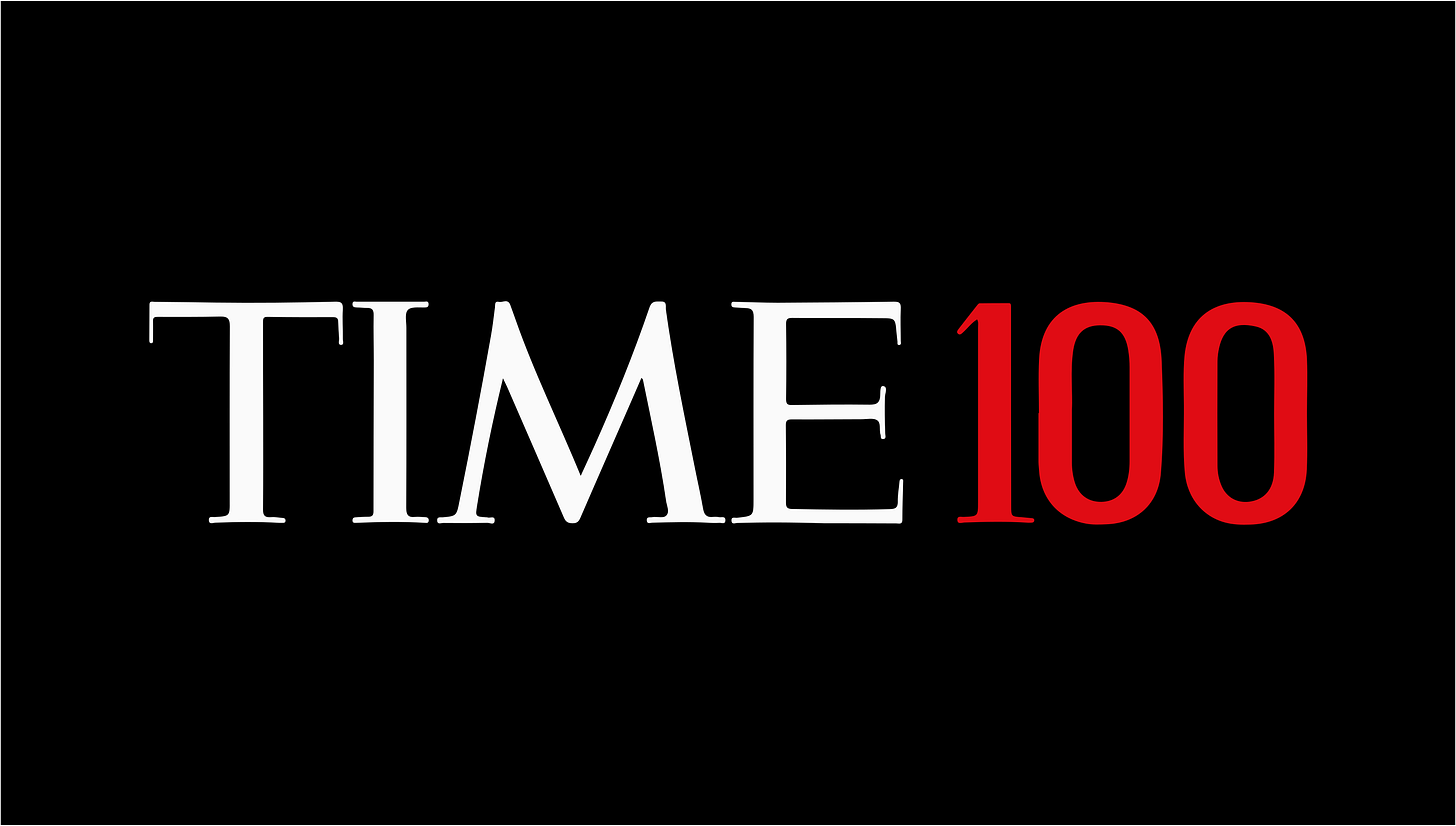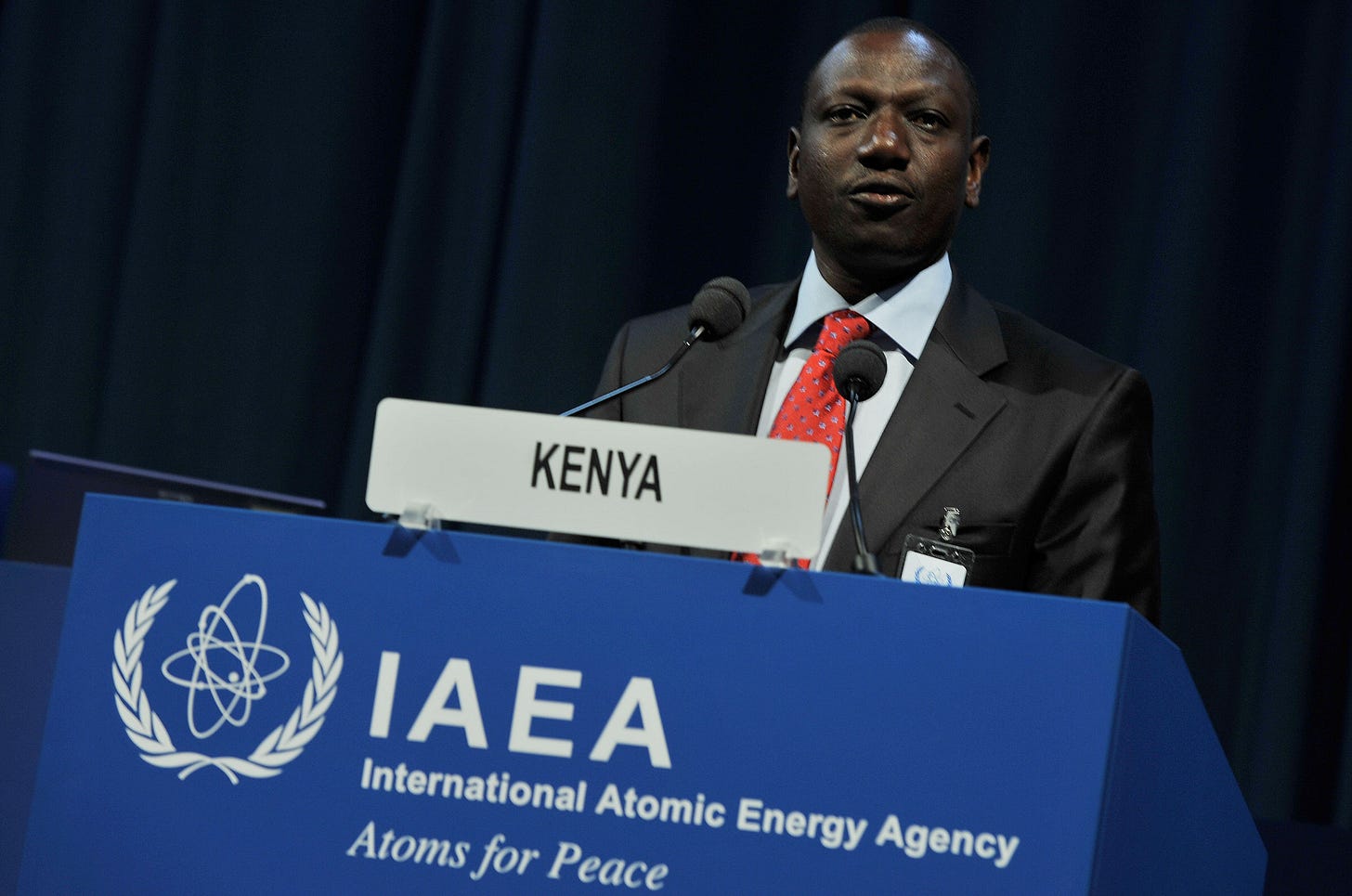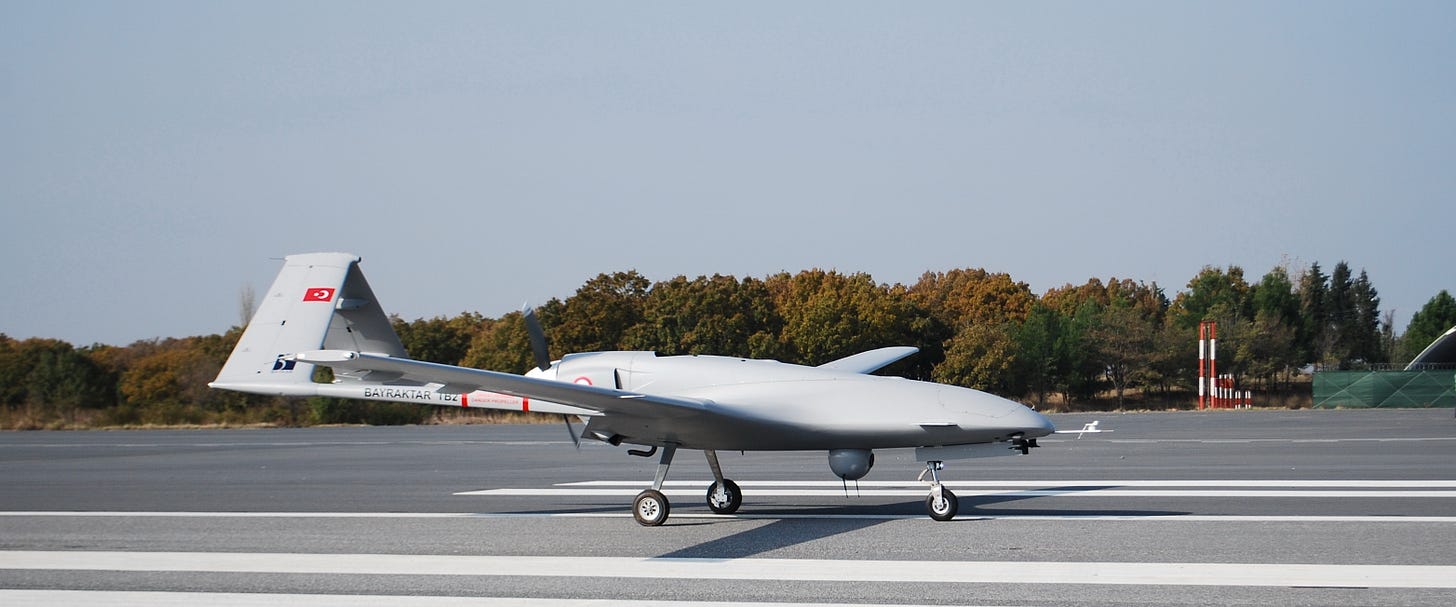🔅 Who Made Time Magazine's Most Influential List?
The Rise of Combat Drones, Adapting to Nigeria's Consumer Market.
Photo of the Day

Spotlight Stories
The Africans That Made Time Magazine's World's Most Influential List
Time magazine has just released its annual list of the world's most influential people, but who are the Africans that have made the list?
First up, we have Afrobeats megastar Burna Boy, who was featured in the icons category for leaving a lasting mark in his field. Grammy-winning French-Beninese singer and legend, Angélique Kidjo, hailed the Nigerian musician in the magazine, saying:
"He is history in the making. Now a whole generation of young people from the continent is looking up to him. "
Next, we have Siya Kolisi, the captain of South Africa's national rugby team, who was recognized for his leadership through "wisdom and humility." South African comedian Trevor Noah said that:
Kolisi gave "hope during a time in which many South Africans find it hard to hold on to any" by leading the country to a stunning rugby World Cup win last year.
Kenya's President William Ruto also made the list for spearheading Africa's climate action, but Time journalist Justin Worland said he needed to address the multiple challenges burdening his country. No pressure, Mr. President.
But it's not just the big names making waves. Ugandan LGBTQ+ advocate Frank Mugisha was honoured for challenging his country's anti-gay law, which came into effect last year.
Julienne Lusenge, a human rights activist from the Democratic Republic of Congo, was also featured for her work in addressing sexual and gender-based violence and pushing for women's political participation in her country.
Navigating Nigeria's Consumer Market: A Tale of Toothpaste, Teetotalers, and Stock Cubes
Nigeria, the land of opportunity, has consumer giants like Unilever, Diageo, and Nestlé going to extraordinary lengths to tap into its massive potential. With a population set to nearly double by 2050, surpassing the US, Nigeria's consumer market is simply too juicy to ignore.
But it's not all smooth sailing:
Nigeria's plummeting currency, soaring inflation, and dollar shortages have some companies running for the hills. Walmart packed up and left, while GSK outsourced its local business.
Unilever, however, is determined to stick it out. They've ditched importing ingredients for low-profit brands and are now focusing on foods and hygiene products that can be made with local ingredients.
Picture Pepsodent toothpaste made with cassava roots instead of Chinese sorbitol.
And then there's Nestlé, working with local suppliers to source ingredients for its Maggi stock cubes. Goodbye, imported cornstarch; hello, cassava flour!
These companies are playing the long game, betting that their efforts will pay off when Nigeria's economy invariably improves.
Mosquito Bed Nets 2.0: Double the Insecticide, Double the Protection
In the ongoing battle against malaria, a disease that's been giving humanity a run for its money, researchers have stumbled upon a new weapon: mosquito bed nets with not one, but two types of insecticide.
These new nets were put to the test in 17 African countries where malaria is endemic, which accounts for more than a quarter of global deaths from the disease. And the results? Well, let's just say the mosquitoes weren't too happy about it.
The trials, which took place between 2019 and 2022, found that nets treated with pyriproxyfen or chlorfenapyr, alongside the trusty old pyrethroid, reduced malaria transmissions by up to 50%.
Bed nets have been a staple in malaria prevention since the 1990s, but unfortunately, mosquitoes have been getting wise to our tricks. They've become increasingly resistant to pyrethroid, the insecticide commonly used in bed nets.
But with these new double-insecticide nets, we might just have a fighting chance. And that's good news, considering that more than 600,000 people died from malaria in 2022.
Drones: Africa's New Weapon of Choice
A number of African governments are ditching fighter jets in favour of combat drones. These unmanned aerial vehicles (UAVs) are the hottest new accessory for cash-strapped militaries looking to flex their muscles without breaking the bank.
However:
While drones may be a bargain compared to traditional aircraft, they come with a hefty price tag in terms of civilian casualties. Just last month, two drone strikes in Mali and Somalia killed dozens of innocent bystanders, proving that piloting a drone isn't at all easy.
The problem is that many governments are buying these drones without investing in proper training for their pilots. Couple that with shoddy intelligence, and you've got a recipe for disaster.
As a result, civilian deaths from drone strikes in Africa have skyrocketed, from 149 in 2020 to 1,418 last year.
So, while combat drones may seem like a cost-effective solution for Africa's security woes, the true cost is being paid by innocent civilians caught in the crossfire. It's a sobering reminder that in warfare, there are no easy answers – or cheap shortcuts.
Food for Thought
“Where you will sit when you are old shows where you stood in youth."
— Yoruba Proverb








